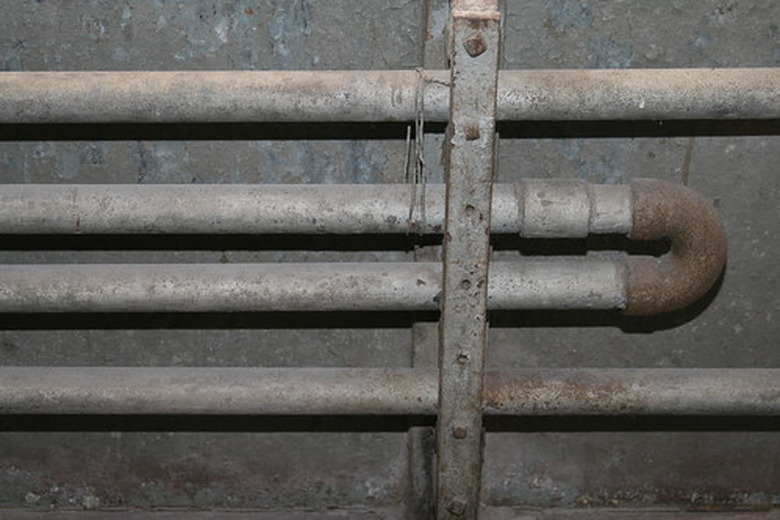PVC Pipe Vs. PVC Conduit
Many homes that have copper plumbing experience leaks due to corrosion, which can be accelerated by an area's water chemistry. Alternative piping thus has been manufactured. PVC pipe is one of the alternatives to copper piping that has become very popular, but it sometimes is confused with PVC conduit. Although these two items are very similar, they are not the same thing and need to be used in the appropriate environment.
Chemical Makeup
Chemical Makeup
Both PVC pipe and PVC conduit are made from polyvinyl chloride, which is a combination of vinyl and plastic. PVC pipe and conduit are sometimes chlorinated in an effort to reduce corrosion and to increase temperature and fire resistance. This type of PVC pipe is known as CPVC (chlorinated polyvinyl chloride).
Pressure
Pressure
One of the primary differences between PVC pipe and PVC conduit is that PVC conduit is not tested for pressure the way that PVC pipe is. This changes where PVC pipe and PVC conduit can be used, since water pressure is a major factor in the stability and durability of a plumbing system. PVC conduit is not approved for use in plumbing systems in general because the lack of pressure testing makes leaks a high probability.
Uses
Uses
PVC pipe and PVC conduit have different uses. PVC pipe is used primarily in plumbing and other pressurized systems. PVC conduit is used primarily in electrical systems. PVC pipe thus is used to carry water, while PVC conduit typically works as housing for wiring. PVC pipe may be used in place of PVC conduit if the PVC pipe has been manufactured to meet safety requirements on flame and temperature resistance, but because PVC conduit isn't pressure tested, PVC conduit cannot replace PVC pipe. The only exception is if the water that will flow through the PVC conduit is not under pressure, such as in a drain pipe.
Thickness
Thickness
PVC pipe is usually thicker than PVC conduit. Due to the fact PVC pipe is used in applications in which pressure is a factor, the increased thickness helps the PVC pipe to remain unbent and intact. PVC conduit doesn't need to withstand pressures that are as high, so manufacturers stretch their resources by making the conduit only as thick as is necessary to solidly protect or route electrical wiring.
Color
Color
PVC pipe usually is white in color. PVC conduit may have coloring added to make it gray. This can help with making a visual distinction between the two pipes, especially when they are of the same diameter and thickness.
